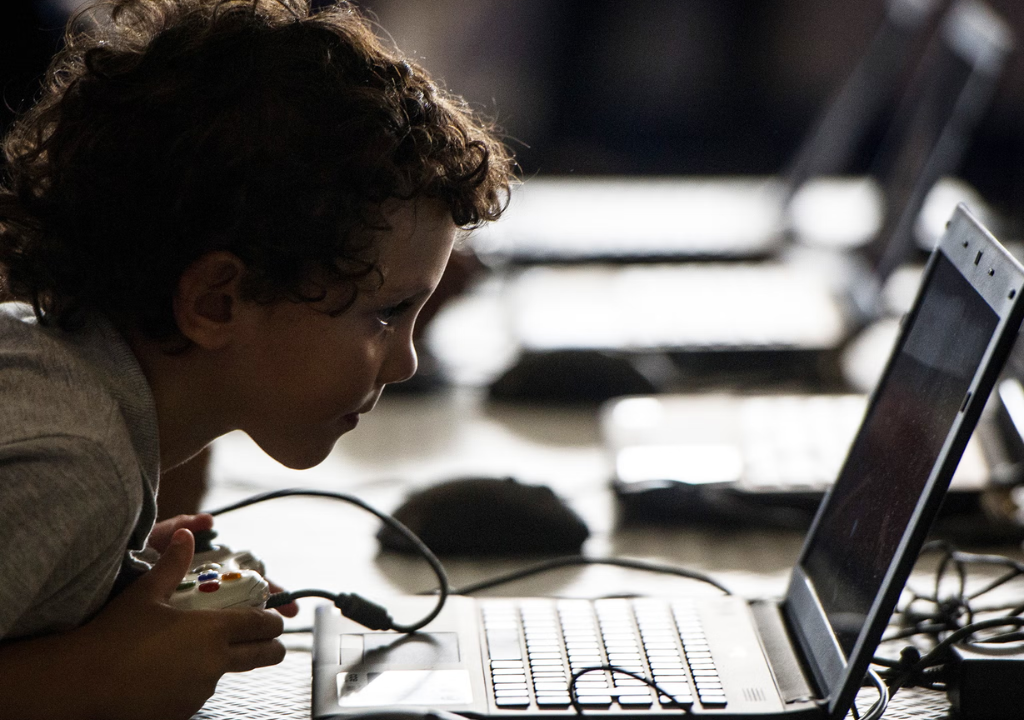In an age where intelligent technology and digital tech tools have become ubiquitous, a pressing question arises: Is technology making us dumber? This article delves into the complex relationship between human cognition and the ever-advancing world of digital communication infrastructure, exploring how our intellectual capabilities are being shaped by the devices and systems we interact with daily.
Historical Perspective
To understand the impact of modern technology on our intelligence, it’s crucial to examine the historical context of human cognitive development and technological progress.
From Tools to Technology
Humans have always been tool users, from the earliest stone implements to today’s smart tech. Each technological leap throughout history has impacted us in various ways, often extending our physical and mental capabilities. The invention of writing systems, for instance, allowed us to store and transmit knowledge across generations, fundamentally changing how we think and learn.
As we progressed from simple tools to complex machines and eventually to digital networked technologies, the relationship between humans and their creations has become increasingly intricate. The internet, in particular, has revolutionized how we access and process information, leading to unprecedented changes in our cognitive processes.
The Cognitive Impact
The cognitive impact of technology companies and their products on human intelligence is a subject of ongoing debate among neuroscientists, psychologists, and technologists. Some argue that our reliance on digital devices is diminishing our ability to think deeply and critically, while others contend that these tools are enhancing our cognitive abilities in new and exciting ways.
How Technology Affects Our Brains
Recent research has shown that extensive use of digital devices can lead to changes in brain structure and function. For example, heavy internet users have been found to have altered gray matter density in areas associated with attention, emotion processing, and decision-making. While these changes aren’t necessarily negative, they do indicate that our brains are adapting to the new cognitive demands of the digital age.
Attention Span and Information Overload

One of the most commonly cited concerns about the impact of technology on cognition is its effect on our attention spans and ability to process information effectively. Developing and maintaining strong critical thinking abilities is more important than ever in an era of information abundance and misinformation.
The Role of Social Media
Social media platforms, designed to capture and hold our attention, have been particularly scrutinized for their potential negative effects on cognitive function. The constant stream of bite-sized information and the dopamine rush associated with likes and shares can create addictive behavior patterns, potentially reducing our capacity for sustained focus and deep thinking.
Connection or Distraction?
While technology has undoubtedly increased our connectivity, it has also introduced unprecedented levels of distraction into our daily lives. The constant pings of notifications and the ease of access to endless information can make it challenging to focus on single tasks for extended periods. This has led some to argue that we’re becoming more scattered and less capable of deep, analytical thinking.
Education in the Digital Age
The education sector has been profoundly impacted by the rise of digital tech tools. While these technologies offer new opportunities for learning and engagement, they also present challenges. Students today have access to vast amounts of information at their fingertips, but they may struggle with information overload and the development of critical thinking skills necessary to evaluate and synthesize this data.
Memory and Dependence on Technology
Our relationship with memory has been significantly altered by the ubiquity of smart technology. Critical Thinking in the Digital Age: While technology provides us with vast amounts of information, the ability to think critically and evaluate this information remains a uniquely human skill.
The Myth of Multitasking
The idea that technology allows us to effectively multitask has been largely debunked. Research shows that what we perceive as multitasking is actually rapid task-switching, which can be less efficient and more mentally taxing than focusing on one task at a time. This misconception about our cognitive capabilities in the digital age may be leading us to overestimate our ability to process information effectively.
The Argument for Cognitive Enhancement
Proponents of technology argue that rather than making us dumber, digital tools are actually enhancing our cognitive abilities. The concept of the “extended mind” suggests that our devices serve as external cognitive resources, allowing us to offload certain mental tasks and free up cognitive resources for higher-order thinking.
Balancing Act
Finding a balance between leveraging technology’s benefits and maintaining our innate cognitive abilities is crucial. While smart technology can augment our intelligence, overreliance on these tools may lead to atrophy of certain cognitive skills. The key lies in using technology mindfully and maintaining practices that exercise our brains independently of digital assistance.
Technology and Human Intelligence
As we continue to integrate advanced technology into our lives, it’s essential to consider how we can harness its power to enhance rather than diminish our intelligence.
Adaptation and Evolution: Our brains are highly adaptable, and it’s likely that we’re evolving new cognitive skills in response to the demands of the digital age. Skills such as rapidly filtering information, multitasking in certain contexts, and navigating complex digital environments may be becoming more pronounced.
The Role of Education: Educational systems must adapt to prepare students for a world where intelligent technology is omnipresent. This involves not only teaching digital literacy but also emphasizing skills that complement rather than compete with artificial intelligence, such as creativity, emotional intelligence, and complex problem-solving.
Mindful Technology Use: Developing habits of mindful technology use can help mitigate some of the potential negative effects on cognition. This includes practices such as digital detoxes, setting boundaries for device use, and engaging in activities that promote deep focus and creativity without digital assistance.
Augmenting Human Intelligence: Rather than viewing technology as a replacement for human cognition, we should focus on how it can augment our natural abilities. This involves designing technologies that work in symbiosis with human intelligence, enhancing our capabilities rather than supplanting them.
2024 Update Emerging Trends and Research
As of 2024, several new developments have further illuminated the relationship between technology and human intelligence:
- Neurotechnology Advancements: Recent breakthroughs in brain-computer interfaces have opened up new possibilities for directly augmenting human cognitive abilities. While still in early stages, these technologies raise both exciting prospects and ethical concerns about the future of human intelligence.
- AI-Human Collaboration: The integration of advanced AI systems into various professional fields has led to new models of AI-human collaboration. This partnership approach is showing promising results in enhancing overall problem-solving capabilities and decision-making processes.
- Digital Wellness Movement: In response to concerns about the negative impacts of technology on cognition, a growing digital wellness movement has emerged. This has led to the development of new apps and features designed to promote healthier technology use habits and protect cognitive well-being.
- Personalized Cognitive Training: Advances in neuroscience and machine learning have enabled the creation of more sophisticated, personalized cognitive training programs. These tools aim to enhance specific cognitive skills and may help mitigate some of the potential negative effects of technology use.
- Long-term Studies on Digital Natives: The first generation to grow up fully immersed in the digital world is now reaching adulthood. Long-term studies on these “digital natives” are providing new insights into how lifelong exposure to technology affects cognitive development and capabilities.
Conclusion
The question “Is technology making us dumber?” doesn’t have a simple yes or no answer. While there are legitimate concerns about how digital networked technologies may be affecting our attention spans, memory, and critical thinking skills, it’s also clear that these tools have the potential to enhance our cognitive abilities in unprecedented ways.
Rather than making us categorically dumber or smarter, technology is more accurately described as re-engineering our intelligence. It’s changing how we think, learn, and interact with information. Some traditional cognitive skills may be declining, but new ones are emerging to take their place.
FAQ’ s
Is technology making us less human?
Technology has undoubtedly changed how we interact and communicate, but whether it makes us less human is subjective. It can enhance our abilities and connections while potentially reducing face-to-face interactions.
Is AI making us dumber?
AI augments our capabilities but doesn’t inherently make us less intelligent. It can streamline tasks and provide information quickly, potentially changing how we learn and apply knowledge.
Has technology made kids dumber?
Technology’s impact on children’s intelligence is debated. It offers access to vast information but may affect attention spans and social skills, depending on usage patterns and parental guidance.
Is technology good or bad?
Technology is neutral; its impact depends on how it’s used. It enhances productivity, connectivity, and knowledge dissemination but also poses risks like dependency and privacy concerns.
Has technology made us less creative?
Technology provides tools for creativity but may influence how creativity is expressed. It offers new mediums and platforms while potentially shaping artistic and innovative processes.
